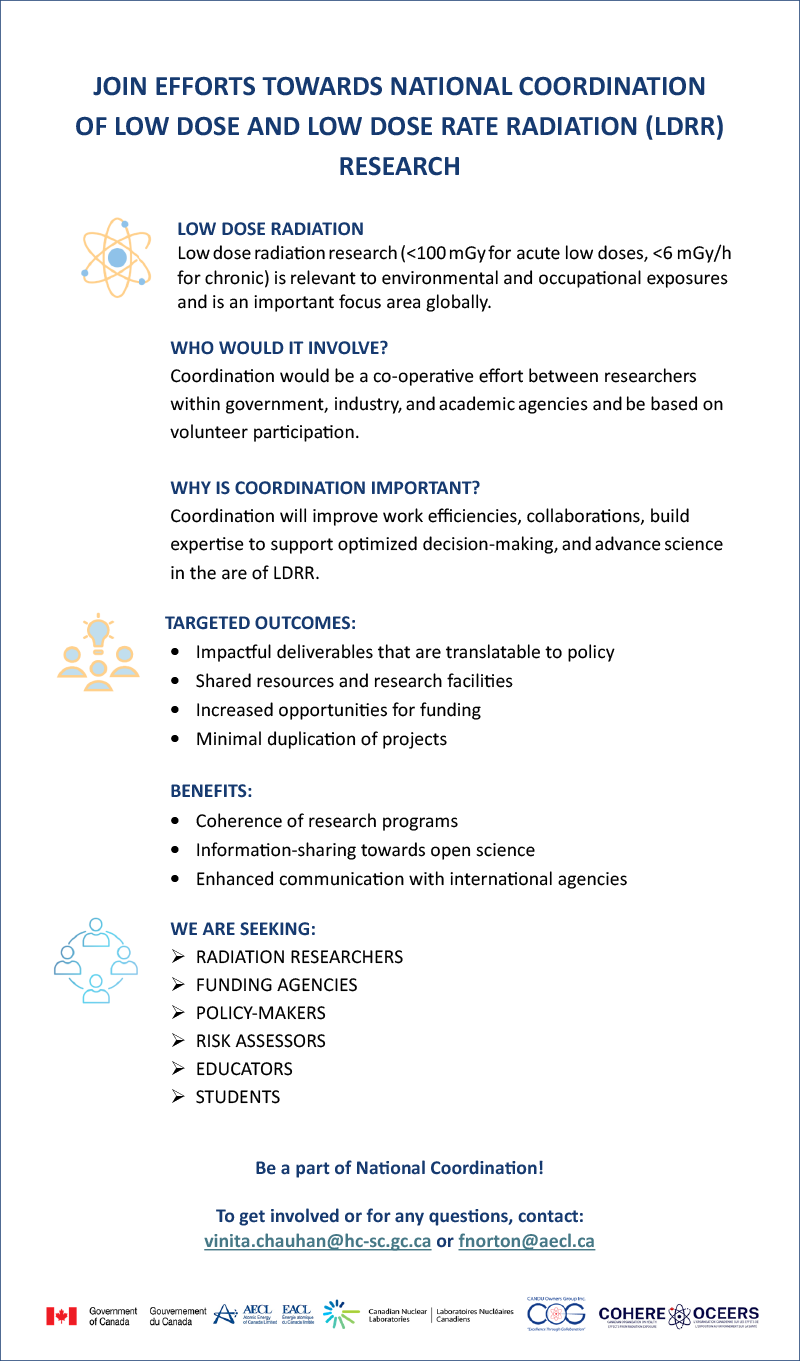Research activities to further our understanding of the biological applications of nuclear research, including understanding the effects of exposure to ionizing radiation on the health of Canadians.
Federal priorities, commitments and goals
Overarching federal priorities and goals related to this theme area include:
- Support the health and wellness of Canadians.
- Improve understanding of radiological health risks caused by exposure to radiation at levels found in occupational and public environments.
- Contribute to the body of evidence that informs the international radiation protection framework (e.g. United Nations Scientific Committee on the Effects of Atomic Radiation, International Commission on Radiological Protection, International Atomic Energy Agency).
- Collect or generate evidence to inform the application of international recommendations in Canada and incorporation into Canadian regulations and national guidance.
- Increase knowledge base in the uncertainties in low-dose risk assessment to address challenges in regulatory policy, health assessment and public communication.
- Integrate sex and gender-based analyses, as well as diversity analysis, to ensure research accounts for diversity factors.
- Improve regulatory oversight of relevant sectors.
- Improve communication to the public and stakeholders.
- Support science as an essential pillar in the strategy to create sustainable economic growth, including an appropriate balance between fundamental research to support new discoveries and the commercialization of ideas.
Scope of Work
The scope of work in this theme area to address the federal priorities include:
Understanding the health effects of radiation
- Understanding the basis of biological effectiveness of different radiations at low doses and dose rates.
- Understanding cancer and non-cancer risks from exposure to ionizing radiation at various dose rates.
- Understanding the mechanisms of radiation interaction with biological systems and radiation risk estimates at low doses and dose rates.
Quantifying exposure to ionizing radiation
- Improving biodosimetry methods and pursuing development of possible biomarkers for radiation induced diseases or effects for both internal and external exposure
- Improving dose assessment methods for measuring internal exposure to alpha/beta radiation
Developing medical applications
- Developing better methods for diagnosis and treatment using biological applications of nuclear research.
- Providing support for vaccine development and immunity testing.
Research results in this theme area can be explored in more detail here.
National Coordination of Low Dose Research
In collaboration with other agencies such as Canadian Organization on Health Effects from Radiation Exposure (COHERE), Candu Owners Group (COG), and Canadian Nuclear Laboratories (CNL), AECL is working towards national coordination of low dose research.
The vision of national coordination is to build on the existing work of low dose radiation research groups in Canada, to identify priorities for future initiatives, and to enable a structured coordination of Canadian research programs by bringing together government, industry and academic partners. Please refer the poster below for more information.

